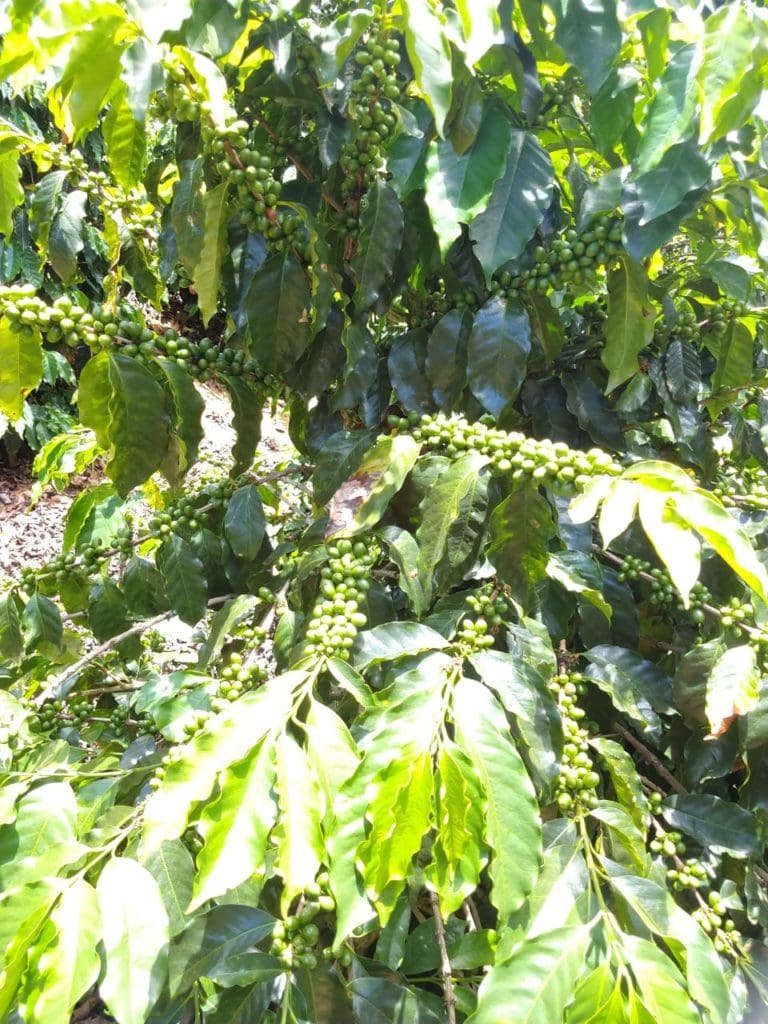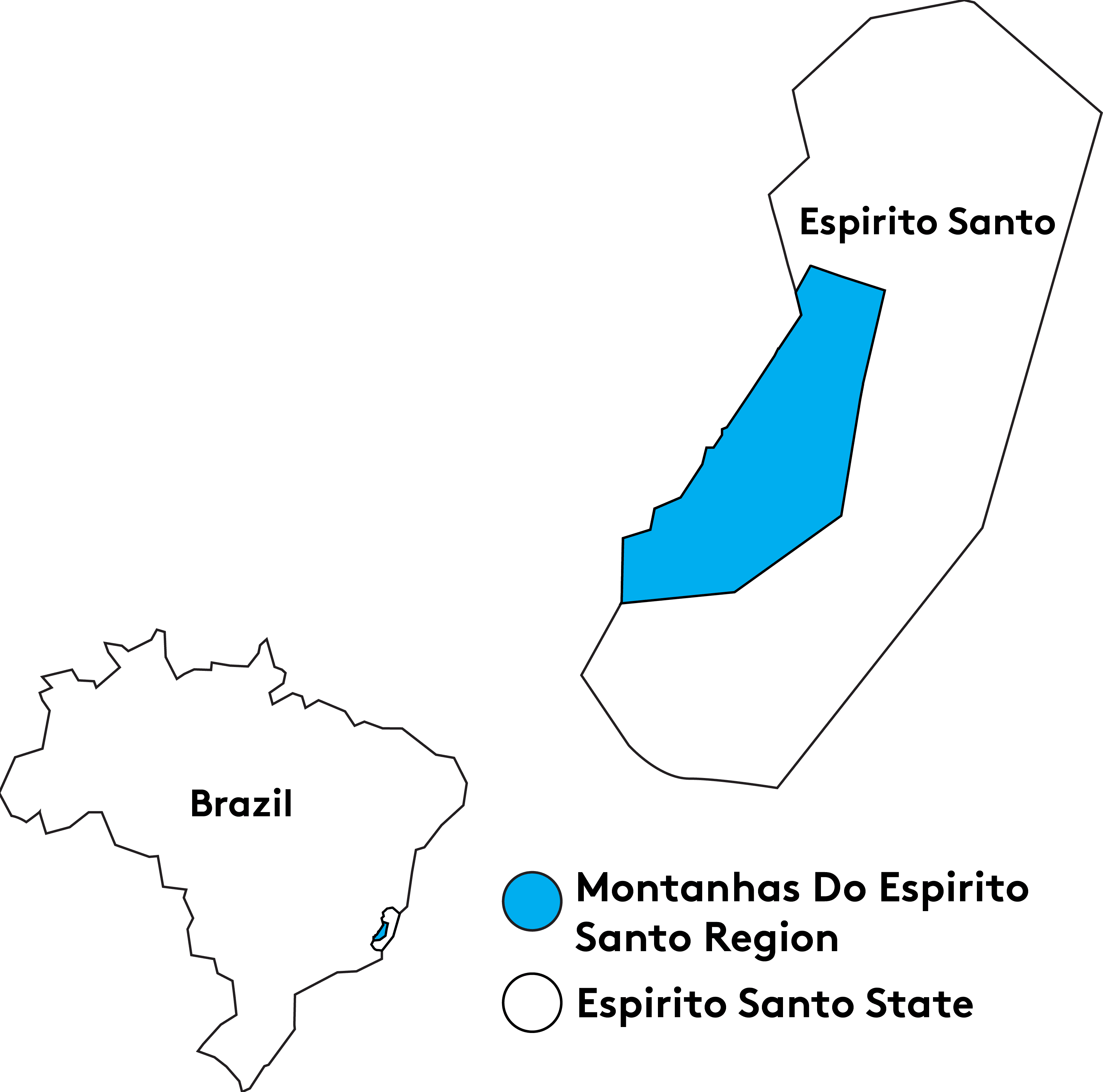José Antonio Debona Romão is of Italian descent and was raised on his family’s property, Sitio Corrego da Prata, in Castelo, Espirito Santo. His father, José Romão, acquired the farm in the 1960s and planted the first coffee trees at that time. They continued working in partnership with his brother, increasing the production area and improving the management.
In 2000, José Antonio began depulping coffee with the intention of improving quality and adding value. Lot by lot, he began identifying the property’s potential pto produce specialty coffee and his coffees were awarded prizes in various cup competitions.
In 2018, the partnership was dissolved and José Antonio continued to produce Pulped Natural coffee and assembled his own machinery, investing in an improved structure to produce specialty coffees.
Currently, José Antonio works a nine-hectare farm with his family and selectively harvests cherries. He is motivated to continue to produce specialty coffee and his son, José Vitor, is eager to continue the process that he learns from his father day by day.
Learn more about the Montanhas do Espirito Santo region of Brazil.



